Google’s automated ranking systems aim to prioritise helpful, reliable information that benefits users over content designed merely to rank highly in search results.
This guide assists content creators in evaluating their output to ensure it aligns with these principles. Key areas of focus include originality, comprehensiveness, and trustworthiness, with an emphasis on providing a superior user experience. Content should demonstrate first-hand expertise and a deep understanding of topics, targeting a genuine audience rather than manipulating search rankings. Additionally, Google highlights the importance of E-E-A-T (Experience, Expertise, Authoritativeness, and Trustworthiness) in content evaluation, particularly for topics affecting health, financial stability, or societal well-being.

In the constantly evolving digital landscape, creating content that stands out can be challenging. Google’s search algorithms are designed to sift through the vast expanse of information available online and present users with the most helpful, reliable content. This isn’t just about pleasing an algorithm; it’s about genuinely serving your audience. Google’s emphasis on “people-first” content means that creators need to focus on producing material that is insightful, well-researched, and truly valuable to their readers. This guide will delve into how you can ensure your content meets these standards, drawing on Google’s principles to create work that not only ranks well but also genuinely engages and benefits your audience.
Evaluating Your Content
Self-Assessment: Begin by asking critical questions about your content. Does it provide original insights, comprehensive coverage, and substantial value? Avoid content that merely rehashes existing material without adding new perspectives or depth.
Audit and Analysis: If your site has experienced drops in traffic or ranking, analyse which pages were most affected and for what types of searches. This can provide insights into how your content measures up against Google’s criteria.
Quality Questions
Originality and Depth: Ensure your content offers unique information, thorough analysis, and comprehensive descriptions. It should add significant value and be more insightful than other available resources.
Headings and Titles: Use descriptive and honest headings that accurately reflect the content. Avoid sensationalism or exaggeration.
User Experience: Strive to create content that users want to bookmark, share, or recommend. High-quality content is often referenced in reputable publications and provides substantial value compared to other search results.
Professionalism: Ensure your content is free from spelling or stylistic errors and is not produced hastily. High-quality production reflects the care and attention given to each piece.
Expertise and Trust
Author Credibility: Clearly indicate who created the content and provide background information on the authors. This builds trust and demonstrates expertise.
Reputation: Your site should be recognised as an authority in its field. This can be achieved through consistent quality, expertise, and reliable information.
Accuracy: Fact-check rigorously to avoid errors that could undermine trust. Content should be thoroughly vetted for accuracy and reliability.

Page Experience
Holistic Approach: Focus on delivering an overall great page experience. This includes not only the content itself but also the usability, design, and performance of your site.
People-First Content
Audience Focus: Create content with a clear audience in mind. Your material should cater to their needs and interests, demonstrating first-hand expertise and in-depth knowledge.
Primary Purpose: Your site should have a clear focus or purpose. Content should leave readers feeling informed and satisfied, without the need to search elsewhere for better information.
Avoiding Search Engine-First Pitfalls
Intent: Content primarily made to attract search engine visits, without adding real value, should be avoided. This includes producing content on trending topics without genuine interest or expertise, using extensive automation, and rewriting others’ content without adding value.
SEO and E-E-A-T
SEO Best Practices: While SEO is important, it should support, not overshadow, the creation of people-first content. Use SEO to help search engines understand your valuable content better.
E-E-A-T Principles: Focus on Experience, Expertise, Authoritativeness, and Trustworthiness. Content demonstrating these qualities, especially on crucial topics, is more likely to rank well.
Practical Questions: Who, How, and Why
Who Created the Content: Transparency about authorship helps build trust. Include bylines and background information about authors.
How Content Was Created: Explain the creation process, especially if automation or AI was used. This transparency can build trust and understanding among readers.
Why Content Was Created: The primary goal should be to help people. Content made to attract search engine traffic without genuine value does not align with Google’s principles.
Creating content that genuinely serves your audience is key to succeeding with Google’s search rankings. This involves thorough self-assessment, focusing on originality, depth, and quality. Trustworthiness and expertise are crucial, as is providing a great user experience. Avoid practices that prioritise search engine rankings over user value. Embrace SEO as a tool to enhance discoverability of your people-first content, and always align with E-E-A-T principles. By answering who, how, and why about your content, you ensure it meets Google’s standards and serves your audience effectively.
“Create content primarily to help people, content that is useful to visitors if they come to your site directly.” – Google
Need help creating content that resonates with your audience and ranks well on Google? Contact us today to learn more about our content creation services!











